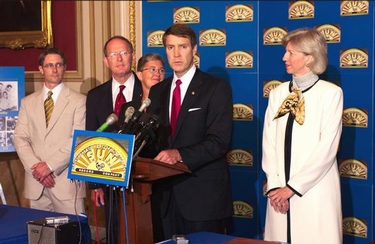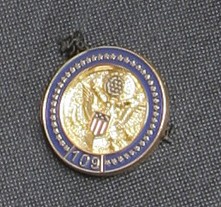|
2007 In The United States
Events from the year 2007 in the United States. Incumbents Federal government * President: George W. Bush ( R-Texas) * Vice President: Dick Cheney ( R-Wyoming) * Chief Justice: John Roberts (New York) * Speaker of the House of Representatives: Dennis Hastert (R-Illinois) (until January 3), Nancy Pelosi ( D-California) (starting January 4) * Senate Majority Leader: Bill Frist ( R-Tennessee) (until January 3), Harry Reid ( D–Nevada) (starting January 3) * Congress: 109th (until January 3), 110th (starting January 3) Events January * January 4 ** William J. Fallon succeeds Gen. John Abizaid as the head of Central Command in Iraq. ** Nancy Pelosi becomes the first female Speaker of the United States House of Representatives. * January 9 **War in Somalia: U.S. warplanes conduct air strikes in Somalia against suspected terrorists. ** Steve Jobs publicly announces the release of the first iPhone. * January 10 – The Iraq War troop surge begins. * Janua ... [...More Info...] [...Related Items...] OR: [Wikipedia] [Google] [Baidu] |
President Of The United States
The president of the United States (POTUS) is the head of state and head of government of the United States of America. The president directs the Federal government of the United States#Executive branch, executive branch of the Federal government of the United States, federal government and is the Powers of the president of the United States#Commander-in-chief, commander-in-chief of the United States Armed Forces. The power of the presidency has grown substantially since the first president, George Washington, took office in 1789. While presidential power has ebbed and flowed over time, the presidency has played an increasingly strong role in American political life since the beginning of the 20th century, with a notable expansion during the presidency of Franklin D. Roosevelt. In contemporary times, the president is also looked upon as one of the world's most powerful political figures as the leader of the only remaining global superpower. As the leader of the nation with t ... [...More Info...] [...Related Items...] OR: [Wikipedia] [Google] [Baidu] |
Bill Frist
William Harrison Frist (born February 22, 1952) is an American physician, businessman, and politician who served as a United States Senator from Tennessee from 1995 to 2007. A member of the Republican Party, he also served as Senate Majority Leader from 2003 to 2007. Born in Nashville, Tennessee, Frist studied health care policy at Princeton University and interned for U.S. Representative Joe L. Evins. Rather than going directly into politics, Frist earned a Doctor of Medicine degree from Harvard Medical School, becoming a surgeon at Massachusetts General Hospital and several other hospitals. In the 1994 Republican Wave, he defeated incumbent Democratic Senator Jim Sasser; he pledged to only serve two terms. After serving as Chairman of the National Republican Senatorial Committee, Frist succeeded Tom Daschle as the Senate Majority Leader. Frist helped pass several parts of President George W. Bush's domestic agenda, including the Jobs and Growth Tax Relief Reconciliation A ... [...More Info...] [...Related Items...] OR: [Wikipedia] [Google] [Baidu] |
Governor Of Arizona
A governor is an administrative leader and head of a polity or political region, ranking under the head of state and in some cases, such as governors-general, as the head of state's official representative. Depending on the type of political region or polity, a ''governor'' may be either appointed or elected, and the governor's powers can vary significantly, depending on the public laws in place locally. The adjective pertaining to a governor is gubernatorial, from the Latin root ''gubernare''. Ancient empires Pre-Roman empires Though the legal and administrative framework of provinces, each administrated by a governor, was created by the Romans, the term ''governor'' has been a convenient term for historians to describe similar systems in antiquity. Indeed, many regions of the pre-Roman antiquity were ultimately replaced by Roman 'standardized' provincial governments after their conquest by Rome. Plato used the metaphor of turning the Ship of State with a rudder; the Latin ... [...More Info...] [...Related Items...] OR: [Wikipedia] [Google] [Baidu] |
Sarah Palin
Sarah Louise Palin (; Heath; born February 11, 1964) is an American politician, commentator, author, and reality television personality who served as the ninth governor of Alaska from 2006 until her resignation in 2009. She was the 2008 Republican vice presidential nominee alongside U.S. Senator John McCain. Palin was elected to the Wasilla city council in 1992 and became mayor of Wasilla in 1996. In 2003, after an unsuccessful run for lieutenant governor, she was appointed chair of the Alaska Oil and Gas Conservation Commission, responsible for overseeing the state's oil and gas fields for safety and efficiency. In 2006, at age 42, she became the youngest person and the first woman to be elected governor of Alaska. Immense legal fees incurred by both Palin and the state of Alaska from her fights against ethics investigations led to her resignation in 2009. Palin was nominated as John McCain's vice presidential running mate at the 2008 Republican National Conventi ... [...More Info...] [...Related Items...] OR: [Wikipedia] [Google] [Baidu] |
Governor Of Alaska
A governor is an administrative leader and head of a polity or political region, ranking under the head of state and in some cases, such as governors-general, as the head of state's official representative. Depending on the type of political region or polity, a ''governor'' may be either appointed or elected, and the governor's powers can vary significantly, depending on the public laws in place locally. The adjective pertaining to a governor is gubernatorial, from the Latin root ''gubernare''. Ancient empires Pre-Roman empires Though the legal and administrative framework of provinces, each administrated by a governor, was created by the Romans, the term ''governor'' has been a convenient term for historians to describe similar systems in antiquity. Indeed, many regions of the pre-Roman antiquity were ultimately replaced by Roman 'standardized' provincial governments after their conquest by Rome. Plato used the metaphor of turning the Ship of State with a rudder; the Latin ... [...More Info...] [...Related Items...] OR: [Wikipedia] [Google] [Baidu] |
Bob Riley
Robert Renfroe Riley (born October 3, 1944) is an American politician and businessman who served as the 52nd governor of Alabama from 2003 to 2011. A member of the Republican Party, he previously represented Alabama's 3rd district in the U.S. House of Representatives from 1997 to 2003. Early life, education and early career Riley was born in Ashland, Alabama, a small town in Clay County where his family ranched and farmed for six generations. Riley attended the University of Alabama, where he was a brother of Phi Kappa Sigma fraternity and graduated with a degree in business administration. Prior to being elected to the U.S. House in 1996, Riley had led a number of businesses. He owned a car dealership and trucking company, and had also been a cattleman and commercial and residential realtor. U.S. House of Representatives Riley was first elected to the U.S. House of Representatives in 1996, defeating his Democratic opponent, State Senator T.D. "Ted" Little ( Auburn) and L ... [...More Info...] [...Related Items...] OR: [Wikipedia] [Google] [Baidu] |
Governor Of Alabama
A governor is an administrative leader and head of a polity or political region, ranking under the head of state and in some cases, such as governors-general, as the head of state's official representative. Depending on the type of political region or polity, a ''governor'' may be either appointed or elected, and the governor's powers can vary significantly, depending on the public laws in place locally. The adjective pertaining to a governor is gubernatorial, from the Latin root ''gubernare''. Ancient empires Pre-Roman empires Though the legal and administrative framework of provinces, each administrated by a governor, was created by the Romans, the term ''governor'' has been a convenient term for historians to describe similar systems in antiquity. Indeed, many regions of the pre-Roman antiquity were ultimately replaced by Roman 'standardized' provincial governments after their conquest by Rome. Plato used the metaphor of turning the Ship of State with a rudder; the Latin ... [...More Info...] [...Related Items...] OR: [Wikipedia] [Google] [Baidu] |
Lieutenant Governor (United States)
A lieutenant governor is an official in state governments of 45 out of 50 of the United States. In most cases, the lieutenant governor is the highest officer of state after the governor, standing in for that officer when they are absent from the state or temporarily incapacitated. In the event a governor dies, resigns or is removed from office, the lieutenant governor typically becomes governor. In 26 states, the governor and lieutenant governor are elected on the same ticket, ensuring that they come from the same political party. In 17 states, they are elected separately and, thus, may come from different parties. Among the seven states without a separate, full-time office of lieutenant governor, two states have a post of lieutenant governor that is filled by the highest officer of the state senate. In Tennessee, the full title of the leader of the Tennessee Senate is " lieutenant governor and speaker of the Senate". In West Virginia, the title of lieutenant governor is assig ... [...More Info...] [...Related Items...] OR: [Wikipedia] [Google] [Baidu] |
Governor (United States)
In the United States, a governor serves as the chief executive and commander-in-chief in each of the fifty states and in the five permanently inhabited territories, functioning as head of government therein. As such, governors are responsible for implementing state laws and overseeing the operation of the state executive branch. As state leaders, governors advance and pursue new and revised policies and programs using a variety of tools, among them executive orders, executive budgets, and legislative proposals and vetoes. Governors carry out their management and leadership responsibilities and objectives with the support and assistance of department and agency heads, many of whom they are empowered to appoint. A majority of governors have the authority to appoint state court judges as well, in most cases from a list of names submitted by a nominations committee. All but five states (Arizona, Maine, New Hampshire, Oregon, and Wyoming) have a lieutenant governor. The lieutena ... [...More Info...] [...Related Items...] OR: [Wikipedia] [Google] [Baidu] |
110th United States Congress
The 110th United States Congress was a meeting of the legislative branch of the United States federal government, between January 3, 2007, and January 3, 2009, during the last two years of the Presidency of George W. Bush. It was composed of the Senate and the House of Representatives. The apportionment of seats in the House was based on the 2000 U.S. Census. The Democratic Party won a majority in both chambers, giving them full control of Congress for the first time since the 103rd Congress in 1993, which was also the previous time they controlled the House. Officially in the Senate, there were 49 Democrats, 49 Republicans, and two independents, but because both of the independents caucused with the Democrats, this gave the Democrats an operational majority. No Democratic-held seats had fallen to the Republican Party in the 2006 elections. This is the most recent Congress to feature a Republican Senators from Minnesota ( Norm Coleman), New Mexico ( Pete Domenici) an ... [...More Info...] [...Related Items...] OR: [Wikipedia] [Google] [Baidu] |
109th United States Congress
The 109th United States Congress was a meeting of the legislative branch of the United States federal government, composed of the United States Senate and the United States House of Representatives, from January 3, 2005 to January 3, 2007, during the fifth and sixth years of George W. Bush's presidency. House members were elected in the 2004 elections on November 2, 2004. Senators were elected in three classes in the 2000 elections on November 7, 2000, 2002 elections on November 5, 2002, or 2004 elections on November 2, 2004. The apportionment of seats in the House of Representatives was based on the Twenty-second Census of the United States in 2000. This is the most recent Congress to feature a Republican Senator from Rhode Island, Lincoln Chafee, who lost re-election in 2006. The Republicans maintained control of both the House and the Senate (slightly increasing their majority in both chambers), and with the reelection of President Bush, the Republicans maintained an ... [...More Info...] [...Related Items...] OR: [Wikipedia] [Google] [Baidu] |
United States Congress
The United States Congress is the legislature of the federal government of the United States. It is bicameral, composed of a lower body, the House of Representatives, and an upper body, the Senate. It meets in the U.S. Capitol in Washington, D.C. Senators and representatives are chosen through direct election, though vacancies in the Senate may be filled by a governor's appointment. Congress has 535 voting members: 100 senators and 435 representatives. The U.S. vice president The vice president of the United States (VPOTUS) is the second-highest officer in the executive branch of the U.S. federal government, after the president of the United States, and ranks first in the presidential line of succession. The vice pr ... has a vote in the Senate only when senators are evenly divided. The House of Representatives has six non-voting members. The sitting of a Congress is for a two-year term, at present, beginning every other January. Elections are held every even-n ... [...More Info...] [...Related Items...] OR: [Wikipedia] [Google] [Baidu] |







